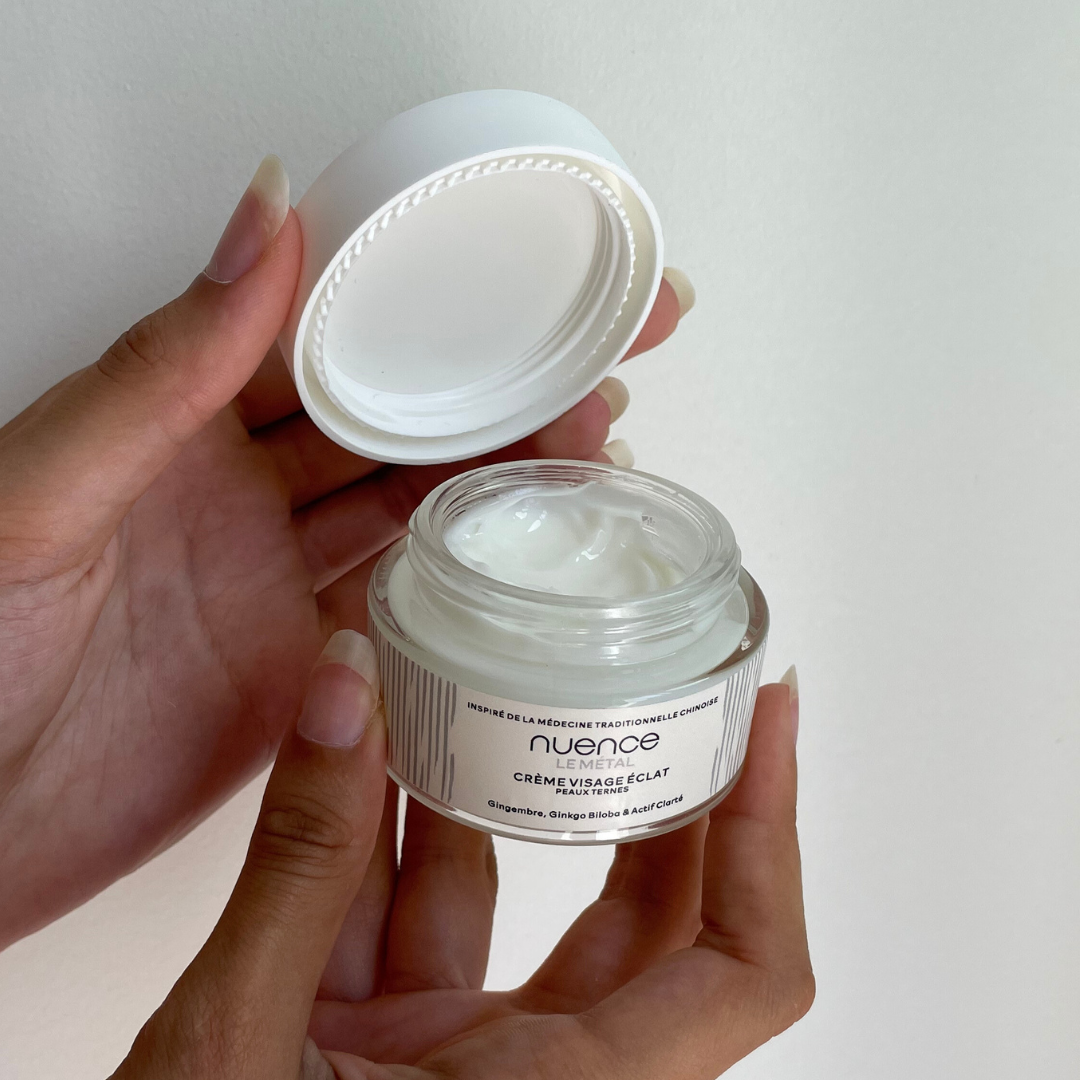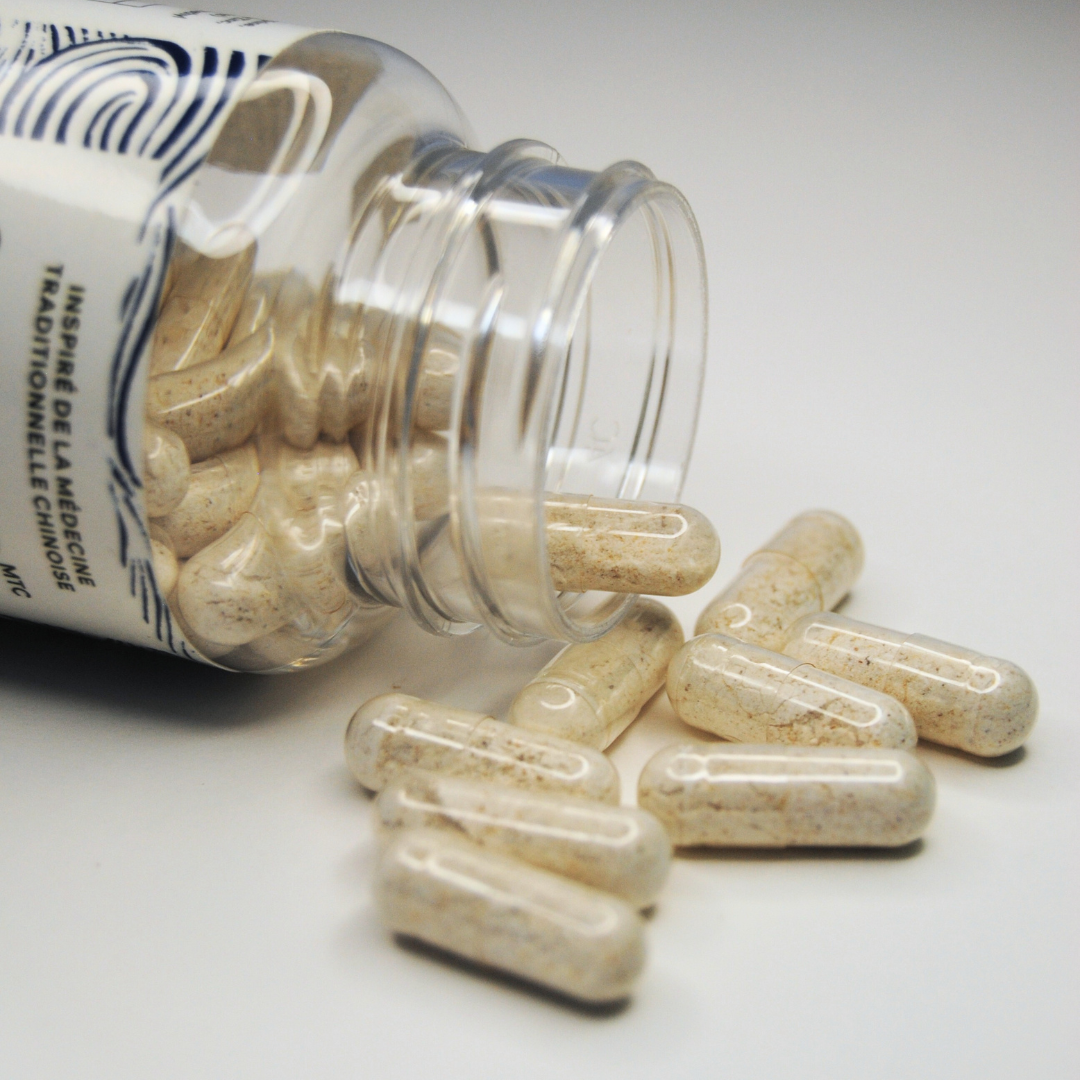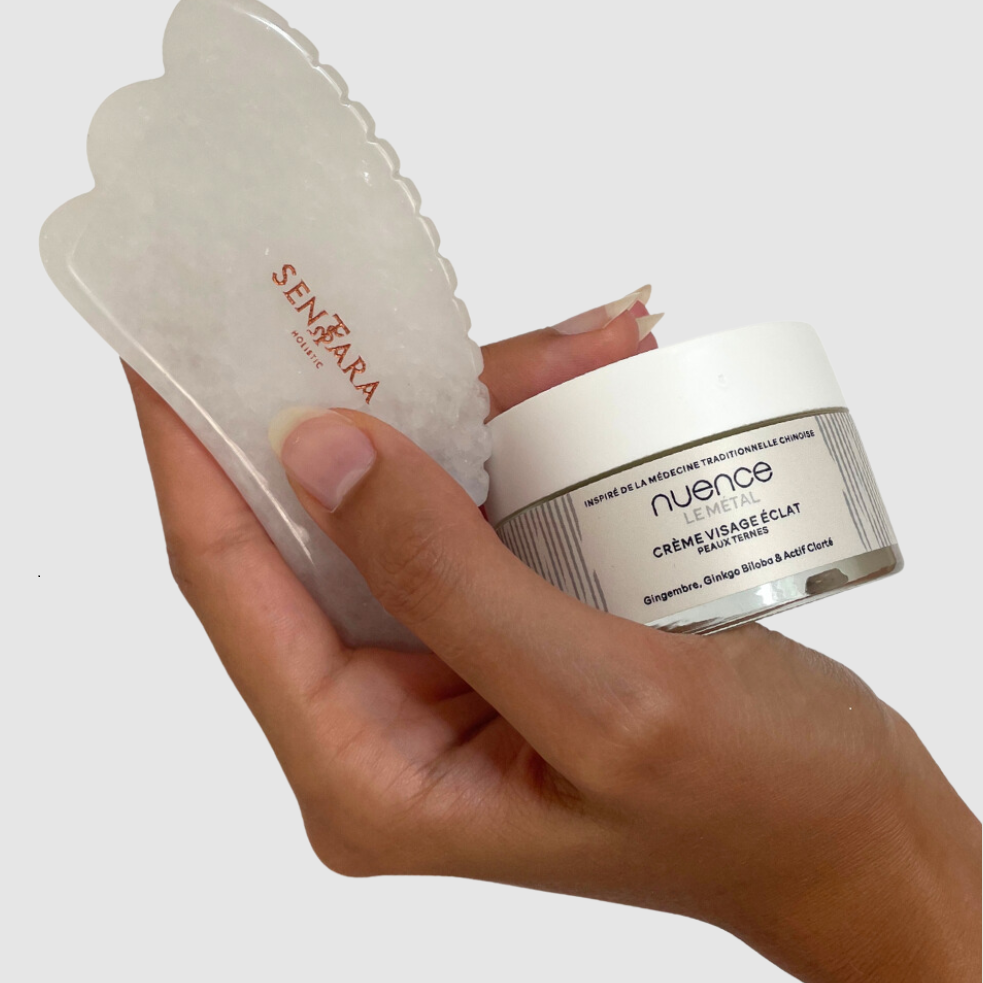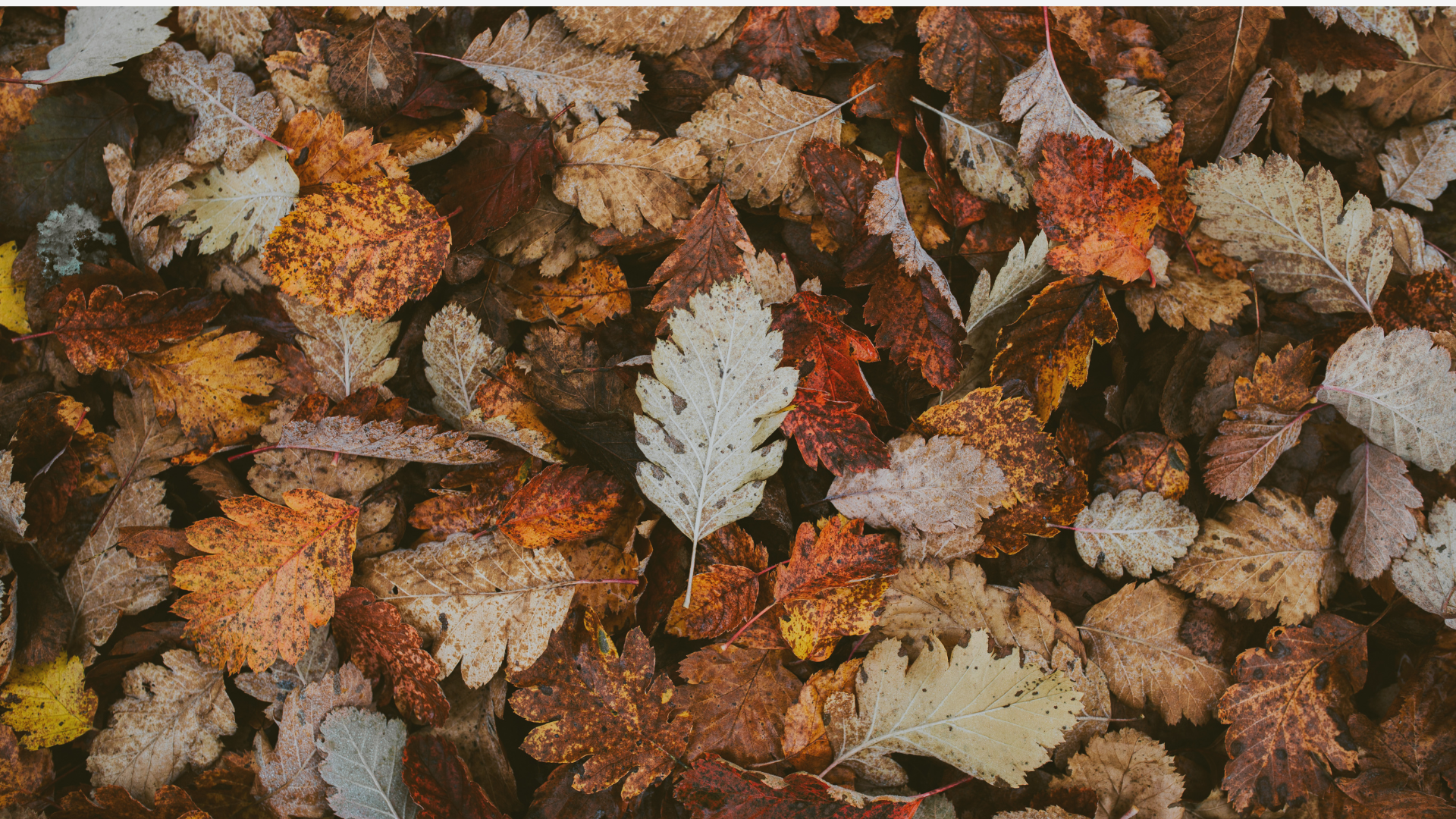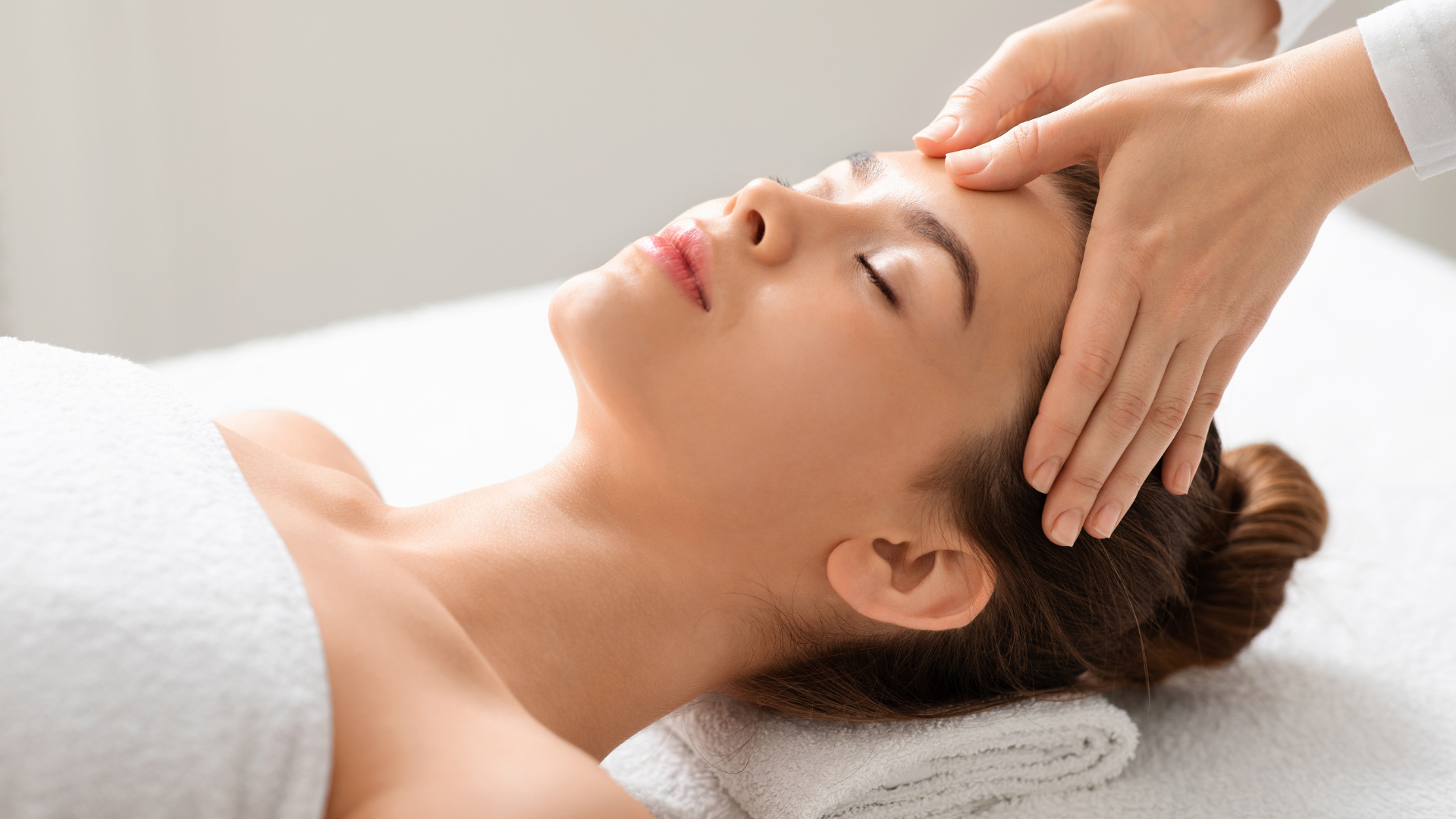Each season has its changes! As we saw in the article on Chinese calendars , each season has its own energy and the body must constantly adapt to it.
Autumn in Traditional Chinese Medicine (TCM) is a transitional period marked by significant energetic changes. Here are some tips from the Nuence MTC team to live this season in harmony:
The calendar
The beginning of autumn refers to the 13th solar term of the Chinese calendar and corresponds to the beginning of August, much earlier than the classic autumn season known in the West.
By September 21st we will be at the energetic peak of fall. The season lasts until mid/late October.
The energies
This season is characterized by a gradual decrease in temperatures, the days begin to get shorter. Autumn is the harvest season which will be followed by the preparation of the fields for winter.
The season is characterized by a return of Yin energy , while Yang energy (strong during summer) will descend (first descending phase).
If you imagine a spring inside you, it stretched to its maximum in summer and is now coming back inward, hence the association of this season with a period of nostalgia. The energy in this season is thus dual: it has a combative dimension, since it prepares our immune defenses which are put to the test, and another nostalgic one, because time takes us away from the beautiful days.
In the fall, we must protect ourselves against the harmful energy of dryness (Zào 燥) which dries up body fluids. By affecting the skin, lungs and mucous membranes, it is associated with respiratory and skin problems.
The element: Metal
The Metal element corresponds to autumn.
According to the cycle of generation of the five elements, each element nourishes and supports the next, creating a continuous flow of energy and transformation.
Thus, the Earth generates Metal (this is found, before its extraction, in the earth, in the form of minerals, rocks or crystals).
And Metal generates Water through several symbolic and energetic mechanisms (the most common being that when heated and melted, metal transforms into a liquid form).
Organs: the lung in the spotlight
The Lung is in the spotlight this season. It is said that the lung is the master of energy. This is why it is very important to take care of this organ. It ensures the breathing function of course but also the general protection of the body, like a shield. Indeed, its role is to protect the body from pathogens that will try to enter the body through the inhaled air.
It governs energy (QI) that is to say the breath. It draws external energy from the air, but it also receives energy from food, metabolized by the spleen and stomach. In the following paragraph on seasonal foods and diet, we explain how an adapted seasonal diet will help to moisten the lung and nourish the Yin energy.
Large Intestine: Coupled with the lungs, the large intestine plays an important role in eliminating waste and regulating energy.

Dietetic
It is very important to accommodate our meals with foods that our body needs during this season. Indeed, in Chinese dietetics, a well-chosen diet contributes to living the season well, preserving health and avoiding illnesses (in this season, our body is exposed to flu, colds and bronchitis, as well as intestinal pathologies).
Cooking method:
In order to avoid Dryness, a pathogenic energy that can lead to all kinds of discomfort (sore throat, constipation, cough, dry skin and hair, etc.), and to nourish the Yin, it is advisable to favor cooked foods, to put aside what is raw and to favor slow and prolonged cooking. Above all, prefer cooking with water because it helps to moisten the Lung!
For autumn, Chinese dietetics suggests favoring foods that are fresh in nature at the beginning of autumn, such as apples, eggplants, mushrooms or pears, for example.
Then, when the weather starts to cool down, it is recommended to favor foods that are warm in nature and will help warm the body and protect against the cold: almonds, anchovies, basil, chestnuts or even chicken.
Consume white foods to strengthen the Lungs and Large Intestine: cereals (rice, flour), coconut, white cabbage, white grapes, endive, nuts and other dried fruits with a white interior (almonds, hazelnuts, etc.).
Spices and hot flavor:
Recommended to chase away Cold, Humidity and Wind as well as their manifestations on the respiratory sphere (colds, coughs, bronchitis, even fever...), the spicy flavor helps regulate the energy of the Lung: consume spring onions, garlic, mustard and pepper (however without overdoing it because this flavor causes perspiration and the elimination of organic fluids)
Here are the 3 spices recommended for the season. Don't hesitate to include it in your recipes to enhance your preparations.
Cinnamon: Plant recommended for its digestive and warming properties in TCM.
Ginger: Due to its spicy flavor and warm nature, ginger is a spice to favor in the fall. It is also prized because it aids digestion and stimulates blood circulation.
Turmeric: This spice originating from Asia is highly valued in Chinese medicine for its many health benefits.
Finally, to follow the advice of Chinese dietetics, it is essential to compose your plate with all the colors to guarantee a balanced and harmonious meal.

Exercises
• Breathing exercises: Practicing Qi Gong and deep breathing exercises helps to strengthen the lungs and improve energy circulation.• Moderate activities: It is recommended to do moderate exercises that do not tire the body too much, such as walking or gentle yoga. For example, take walks in the forest to oxygenate yourself and reconnect with the trees (lungs of the planet) in order to tone the lungs before the arrival of the first cold weather.
What Qi Gong exercises should I do?
Opening and closing movement of the arms
With your arms stretched out in front of you, palms facing the ground, you make a shoulder movement that moves your wrists away from the center.
Then we spread our arms still with this gesture while turning our wrists palms towards the Sky. We thus stretch the Metal meridian with on the yin phase the Lung meridian and on the yang phase, the Large Intestine meridian.
Repeat the exercise for a few minutes.
What if you recharged your batteries in white?
In autumn it is good to wear white clothes and underwear and metal jewelry.

What is the emotion most particularly associated with this season?
Autumn is a season of introspection. It can bring up feelings of sorrow or melancholy. It is important to acknowledge these emotions and let them flow to prevent them from affecting the lungs. Emotions must flow within us and not leave a trace.
Organization and letting go: Metal is associated with letting go, letting go of the old and welcoming the new (the lungs and large intestine are responsible for this process in the body). On a mental level, take advantage of this period to put your affairs in order and welcome new habits that promote tranquility and well-being, for example, mindful breathing which will also allow the acquisition of new ideas,
The Metal element and the skin
The imbalance of the Metal element often affects the skin. Like the lungs, the skin is the only part of the body in direct contact with the outside air (the skin "breathes"), and like the large intestine, it eliminates toxins through perspiration.
We often find in people with an imbalance of the Metal element an extension in dermatology: eczema, psoriasis, dermatitis, acne etc. More discreetly, an imbalance of the Metal element will give the skin a dull appearance.
To restore the skin's radiance, NUENCE-MTC has developed a moisturizing face cream combined with the METAL element with plant active ingredients from the Chinese pharmacopoeia. Among these, ginger, with its tonic and circulatory properties, which was mentioned above in the 'dietetics' section.

To conclude
To maintain the balance of the metal element during the fall season, it is important to:
- Practice breathing exercises to strengthen the lungs.
- Consume white foods like rice, cabbage, and pears.
- Manage emotions by practicing relaxation and meditation techniques.
- Protect the body against dryness, wind and cold.

